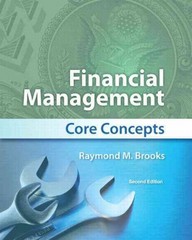
 Drop down choices:
Drop down choices:
earnings retention dividend payout
more less
5. Dividend preference theory (bird-in-the-hand theory) Despite some theoretical assertions, many investors do care a great deal about dividends. They believe that sure dividends today (a bird in the hand) are less risky than a return in the form of capital gains in the future. The following table lists some factors that might affect an investor's preference for dividends. Indicate whether the given factors are likely to make an investor prefer to receive more or fewer dividends. Investors Will Likely Prefer... More Fewer Dividends Dividends Factor The value of a dividend received today is known, but the value of a capital gain received in the future is uncertain. When investors receive dividends today, they may choose to reinvest or to consume goods. When an investor dies, his or her heirs are not liable for taxes on the capital gains generated during the investor's life. They are only liable for the capital gains earned since the investor's death. In examining investors' preferences for dividends, it is useful to begin with the concept of dividend irrelevance. Dividend irrelevance suggests that in a world with no taxes or brokerage (or transaction) costs, firms and investors are indifferent to the paying or receiving of dividends. However, as these restrictions are relaxed, various factors suggest that firms should pursue high or low payouts. One such factor is: Firms incur various legal and administrative costs (called flotation costs) when they issue new stock. Based on the factor described, identify whether firms, in general, will tend to favor high or low payout ratios. Favor a high payout Favor a low payout Erin and Mia are finance researchers and are discussing the Modigliani and Miller (MM) dividend irrelevance theory. Based on your understanding of MM's argument and the impact of the assumptions applied to the argument, fill in the missing parts of their conversation. ERIN: Modigliani and Miller (MM) dividend irrelevance theory is based on several assumptions. However, in the real world, these assumptions don't apply. MIA: True. Issuance or flotation costs impact dividend policy decisions, and companies do care about whether to retain earnings or distribute dividends. ERIN: You are right, Mia. Due to the issuance costs with new equity sales, companies tend to make more desirable. MIA: If a company pays out dividends and needs funds to invest in profitable projects, it would need to generate capital through new stock issues, which is expensive than using internal cash flow

 Drop down choices:
Drop down choices:





